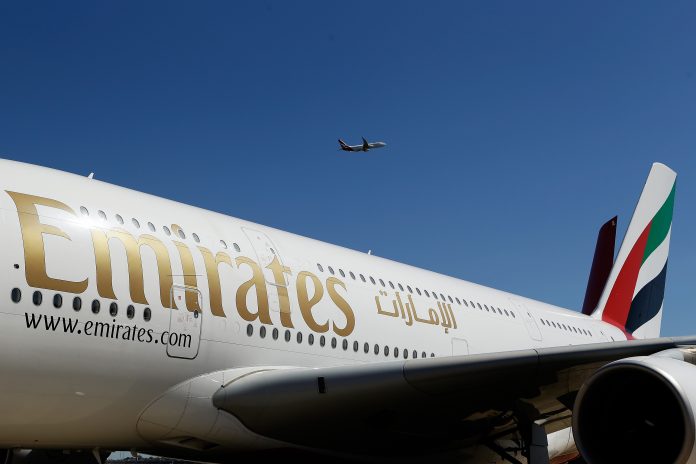
Emirates Airlines on Thursday said it would suspend its flight operations to Nigeria from September 1, 2022.
The flag carrier of the United Arab Emirates (UAE) disclosed this in a statement, blaming its decision on the inability to repatriate its earnings in foreign exchange from Nigeria.
This is coming about three weeks after the airlines appealed to the Minister of Aviation, Hadi Sirika, to support the repatriation of its revenue said to be $85 million. Nigeria is facing a forex exchange crisis and this has also affected the nation’s local currency — Naira — to depreciate against the dollar.
In a letter addressed to the minister and signed by Sheik Majid Al Mualla, Emirates airline’s Divisional Senior Vice-President (DSVP), International Affairs, Emirates said the planned reductions in its operations in Nigeria would take effect from August 15, 2022.
It stated that flights would be reduced from 11 per week to seven per week at the Murtala Muhammed International Airport (MMIA), Lagos.
“We have had no choice but to take this action, to mitigate the continued losses Emirates is experiencing as a result of funds being blocked in Nigeria,” the airlines said.
“As of July 2022, Emirates has US$ 85 million of funds awaiting repatriation from Nigeria. This figure has been rising by more than $US 10 million every month, as the ongoing operational costs of our 11 weekly flights to Lagos and 5 to Abuja continue to accumulate.”
Noting that the funds are urgently needed to meet its operational costs and maintain the commercial viability of its services to Nigeria, the airlines said it cannot continue to operate at the current level “in the face of mounting losses, especially in the challenging post-COVID-19 climate.”
It added, “Emirates did try to stem the losses by proposing to pay for fuel in Nigeria in Nairas, which would have at least reduced one element of our ongoing costs, however, this request was denied by the supplier.
“This means that not only are Emirates’ revenues accumulating, we also have to send hard currency into Nigeria to sustain our own operation. Meanwhile, our revenues are out of reach, and not even earning credit interest.
“Your Excellency, this is not a decision we have taken lightly. Indeed, we have made every effort to work with the Central Bank of Nigeria (CBN) to find a solution to this issue. Our Senior Vice-President met with the Deputy Governor of the CBN in May and followed up on the meeting by letter to the Governor himself the following month, however, no positive response was received.
“Meetings were also held with Emirates’ own bank in Nigeria and in collaboration with IATA to discuss improving FX allocation, but with limited success. Despite our considerable efforts, the situation continues to deteriorate. We are now in the unfortunate position of having to cut flights, to mitigate against further losses going forward.”
It further asked the Nigerian government for support to address its financial constraint, said to be a primary issue to the airlines’ operations.












